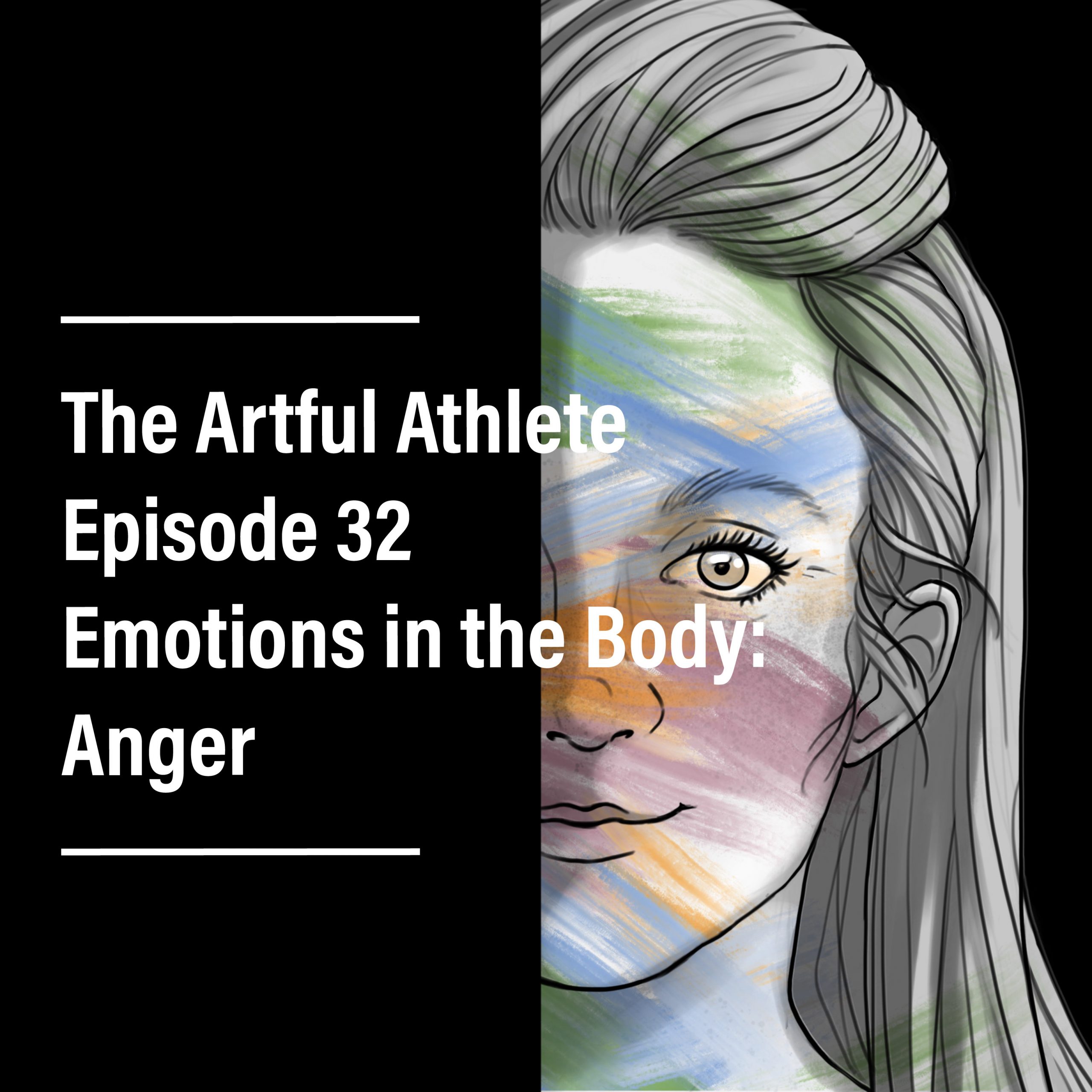Podcast – Episode 32 – Emotions in the Body: Anger

Written by Ségolène
Hello Lovely Voices!
Let’s get down to business and dig into our Emotions in the body series. And to get us started off, I’ve decided to open with an emotion I’m not particularly fond of: Anger.
I say, “not fond of”, because in life, it’s not an emotional state I gravitate towards or experience often. I used to be quick to anger, but it’s been a good 10 years at least since then, and it doesn’t get triggered often, as I am quite a phlegmatic human now.
And thus, because we don’t “hang out” anymore, when it does arise (and it still does), my body’s response is pretty strong. It feels like a whirlwind is trapped underneath my ribcage, my breath goes to pot, I have bucket loads of breathing spasms, digestion’s off, I’m drained of energy... It’s a very uncomfortable moment on a physical plane.
Mentally, it takes its toll too. In anger, I am methodical rather than hysterical. I’ll do the angry-rationalisation-thing where, I’ll list all the reasons why my wrath is justified. And will diligently provide the “opponent” with an itemized list of why they’re wrong, why my anger is legitimate, and will press every single button and weakness I see to “win”.
Using a lot of brackets here, because, ultimately, in anger:
There is no winning side.
There is no rationalizing possible.
There is only poison.


And that’s SCIENCE!
You’ll notice that during this episode I’m bringing up a lot of sciencey-stuff. Because as holistic and ethereal as one can be when exploring emotions, we have to remember first and foremost that these are the end result of a chemical reaction within our brains.
BRAINS. PLURAL. NOTE THAT S PLEASE! Because you also have neurons in your heart and your gut. Yup, you’ve got the big guy at the top, and he’s in charge of the whole machinery, but you also have to take into account the other 2 brains he rules over. So, when experiencing one of the main 4 emotional states, it’s important to note the sensations and manifestations of each within the body.
1) Listen to your digestive system.
2) Check your breath, skin and blood-circulation
3) Observe your energy levels and thoughts.
Tuning in to these signs will help you identify how deep the emotion runs, what its drive is, and therefore giving you a chance to work with it, explore the cause and effect, and let it go.
Anger isn’t just a series of swearwords your shout and scream on top of your lungs at one person or situation. It’s your brain telling you that said person or situation is walking on your beliefs, not having respect for you, your values and essentially who you are.
Your brain is trying to tell you: I need you to do something about this. This goes against every single cell of my being. This is something I disagree with. These are my values and beliefs being trumped on. This is my essence being used and abused.
So, when we’re angry, it’s our brain desperately trying to tell us to do something about the fact that either we, or someone we love, or something we believe in is being attacked and disrespected.
The level of our reaction is going. to depend on the hormonal/chemical release going on inside the body in that state of tension, AND the connection we have towards the part of us that feels attacked. I talk about this quite in depth in the episode.
I also mention a couple of things regarding how to help your body flush out the physical effects of anger – aiming for bitter foods which are gonna help our gallbladder and liver in that flushing out of the hormonal overdose. I did mention stuff like rocket, tahini, asparagus… Basically a lot of dark green foods. I found you this little article as well from healthline about 9 Bitter Foods That are Good for You.
I recommend giving this a read – it’s a great place to start.

Another really fascinating to look into, and that’s a theory that I’ve always found fascinating, is Hippocrates’ Humorism. The father of ancient medicine believed that the body was governed by four liquids, four “humors” and that the way they interacted with each other was responsible for the physical manifestation of the emotional state. To him, each of these fluids was also associated with an element.
When you’re healthy, all four liquids, all four colours are balanced.
When one of them spikes or goes underactive, that’s when you’ve got a problem and you need work towards recreating that balance. And you do that through physical means first, through food, through breath and physical release work, before moving to the mental side of things. You can do both at the same time too and bounce off between the two. I find this more holistic, and it allows you to find balance more readily.
A huge thank you to my good friend _Malice_z for making my drawing look clear and pretty!

Yellow – stands for the yellow bile. Think gallbladder and fire. and bitterness, fire and gallbladder
Black – is for black bile. The black substance connected to the spleen. It’s element is earth.
Plegm – also known as the lymph, fluid that runs under your skin, hydrates your organs. Think water, brain and lungs.
Red – I think you’ll have guessed that one… Blood. Hippocrates links it to the liver, and air.
I’ll be going back to Humorism over the next few episodes as well, because I find this vision and understanding of the correlation between body and emotions very useful. It’s great from a performance side of things because it allows you to pinpoint the quality of the emotion though the character’s reaction. And from a human / life / trying to understand why I’m reacting / coping the way I am, it’s telling you which part of your organs need extra support.
What do you think? Had you heard of humorism before? It’s one I’ve revisited a lot over the year. It’s visual. it’s colorful. It gets me thinking and listening to my body. It reminds me of ayurvedic science. It’s one for the books.
Catch you next week! I hope you enjoy this week’s episode! And don’t forget to tune in to Dyl Salamon’s Mindful Chat!
Much love,
Ségolène xx


Recent Comments